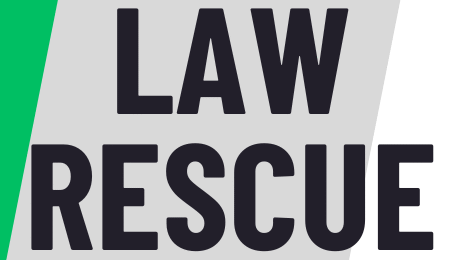Do you know how much it costs to hire an estate planning lawyer for your senior legal needs? The price can change a lot. It depends on where you live and what services you need.
Recent data shows that hourly rates can go from $162 in some states to over $1,500 in big cities like New York City. Knowing these costs helps you make better choices for your legal needs.
When thinking about hiring an estate planning lawyer for senior legal services, it’s key to know what affects their fees. This article will give you a clear idea of what to expect and how to deal with the costs of these services.
What You Need to Know About Elder Law Services
Aging brings many challenges that need the help of an elder care lawyer. Elder law services focus on the unique needs of seniors. They cover a wide range of legal issues that affect their quality of life.
Key Legal Areas Covered by Elder Law
Elder law attorneys offer advice on health and long-term care planning. They also help with housing, public benefits, and making decisions for others. Additionally, they assist with estate planning, tax issues, and insurance matters. They help clients plan financially and legally as their needs change.
| Legal Area | Description |
|---|---|
| Health and Long-Term Care Planning | Assistance with planning for future healthcare needs, including Medicaid and Medicare. |
| Estate Planning | Creation of wills, trusts, and other documents to manage and distribute assets. |
| Surrogate Decision-Making | Establishing powers of attorney to make decisions on behalf of seniors. |
Why Specialized Legal Help Is Necessary for Seniors
Seniors face unique legal challenges that need a Medicaid planning attorney or elder law attorney. Specialized legal help protects seniors’ rights. It ensures they get the benefits they deserve.
Understanding elder law and the need for specialized help is key. Seniors and their families can make better legal decisions.
The Role of Elder Law Attorneys in Senior Care Planning
Understanding the role of elder law attorneys is key when dealing with senior care. These attorneys focus on the legal needs of seniors. They offer detailed advice on senior care planning.
Estate Planning and Wills
Elder law attorneys help create estate plans and wills. They make sure your assets go to the right people. They also guide you through estate tax laws and set up trusts to safeguard your estate.
Medicaid and Medicare Planning
They offer expert advice on Medicaid and Medicare planning. They explain the rules and how to apply. They help plan for long-term care costs and ensure you get the benefits you deserve.
Long-Term Care Arrangements
Elder law attorneys help plan for long-term care. This includes nursing home and home care. They ensure your rights are protected in the care planning process.
Guardianship and Conservatorship
When seniors can’t manage their affairs, these attorneys help. They set up guardianship or conservatorship. This way, a trusted person can make decisions for them.
Elder Abuse and Fraud Protection
Elder law attorneys also protect seniors from abuse and fraud. They teach you how to spot abuse and take legal action against it.
Working with an elder law attorney ensures your senior care planning is thorough and legal. They give you peace of mind, knowing your legal matters are taken care of.
Common Fee Structures Used by Elder Law Attorneys
When you need legal help for elder law, it’s key to know how attorneys charge. They use different ways to bill, depending on what you need. Knowing these can help you plan and manage your legal costs better.
Hourly Rate Billing
Many elder law attorneys charge by the hour. This is good for complex cases that need a lot of time and skill. The hourly rate changes based on the lawyer’s experience, where they are, and how hard the case is.
Flat Fee Services
For things like estate planning or making a will, some lawyers charge a flat fee. This makes costs clear because you know exactly what you’ll pay for that service.
Retainer Agreements
Some lawyers work on a retainer basis. You pay a set fee (like monthly) for ongoing legal help. This is great for those who need legal support all the time.
Contingency Fees (When Applicable)
In some cases, like fighting elder abuse or neglect, lawyers might take a contingency fee. This means they only get paid if you win, usually a percentage of what you get.
Talking to an elder law attorney about their fees is very important. Here are some things to think about:
- The type of fee structure they use
- How they figure out the fee
- Any extra costs or expenses
- Payment terms and if they offer payment plans
Understanding how elder law attorneys charge can help you choose the right lawyer. It also helps you manage your legal costs better.
Average Cost Ranges for Elder Law Services
Seeking legal help for elder law matters means knowing the average costs. Elder law attorneys offer many services, from first meetings to complex legal actions. Their fees can change based on the service.
Initial Consultation Fees
The first meeting is key to figuring out a senior’s legal needs. Costs for this can be between $100 and $500. This depends on the lawyer’s experience and the issues discussed.
Estate Planning Document Preparation
Estate planning is vital in elder law. It includes making wills, trusts, and other documents. Costs for making these documents can be from $1,000 to $3,500. This depends on the estate’s complexity and the number of documents needed.
Medicaid Application Assistance
Medicaid planning helps seniors apply for Medicaid benefits. Costs for this service can be from $3,000 to $10,000. This reflects the complexity and time needed to understand Medicaid rules.
Guardianship Proceedings
Guardianship is needed when seniors can’t make decisions for themselves. Starting and finishing guardianship can cost between $2,000 and $6,000. Costs vary based on the case’s complexity and court rules.
Probate Administration
Probate administration manages a deceased senior’s estate. It includes distributing assets as per the will or state law. Costs can be a percentage of the estate’s value or an hourly rate. This depends on the lawyer’s billing and the estate’s complexity.
Knowing these cost ranges helps seniors and their families plan for legal services. It’s crucial to talk about fees with your elder law attorney at the first meeting. This gives a clear idea of what to expect.
Factors That Influence Elder Law Attorney Fees
When looking for legal help for elderly loved ones, it’s important to know what affects lawyer fees. Finding the right elder care lawyer can be a big task. Several things can change the cost.
Attorney Experience and Specialization
More experienced lawyers, especially those focused on elder law, charge more. This is because they have deep knowledge and can handle complex cases well. For example, they can help with power of attorney for elderly clients.
Geographic Location and Local Market Rates
Where the lawyer is located also matters a lot. Lawyers in big cities or places with high living costs charge more. Those in smaller towns usually charge less.
Complexity of Your Legal Situation
The type of legal issue you face is also key. Cases that need detailed estate planning or help with Medicaid can be more expensive. They require more time and skill from the lawyer.
Urgency of Your Legal Needs
How quickly you need help can also raise costs. If you need fast service, you might pay more. This is because the lawyer will work on your case right away.
Knowing these factors can help you plan for the costs of hiring an elder law attorney. Think about the lawyer’s experience, where they are located, how complex your case is, and how urgent it is. This way, you can make a better choice about who to represent you.
How to Find and Evaluate Elder Law Attorneys
Looking for an elder law attorney? It’s important to think about a few key things. These lawyers focus on estate planning, Medicaid and Medicare, and more. Knowing what they do is key to picking the right one.
Researching Local Options
Start by looking for elder law attorneys in your area. Use online directories and bar association services. Also, ask for suggestions from senior centers or people you trust. Make a list of possible attorneys to look into more.
| Research Method | Description | Benefits |
|---|---|---|
| Online Directories | Search online for elder law attorneys in your area. | Quick and easy way to find a list of potential attorneys. |
| Bar Association Referral Services | Contact local bar associations for referrals. | Attorneys are vetted by the bar association, ensuring a level of professionalism. |
| Senior Center Recommendations | Ask for recommendations at local senior centers. | Senior centers often have experience with local elder law attorneys and can provide trusted recommendations. |
Checking Credentials and Specializations
After making a list, check the credentials and specializations of each attorney. Make sure they have experience in elder law and a good reputation. You can check their credentials through state bar associations and look at their websites for what they specialize in.

By doing your research, you can find a qualified elder law attorney who fits your needs.
How Much Do Elder Law Attorneys Charge
Do you know how much it costs to protect your loved ones from exploitation and plan their estate? The fees for experienced professionals can vary a lot.
Hourly rates for these experts can be from $162 to over $1,500. Costs for estate planning and Medicaid planning are important to know when planning for the future.
Knowing what affects these costs can help you make better choices for your estate planning and preventing exploitation.
What You Need to Know About Elder Law Services
Elder law attorneys offer special legal help for seniors. They deal with estate planning and guardianship. Their goal is to protect seniors’ rights and assets, ensuring they get the care they need.
Key Legal Areas Covered by Elder Law
Elder law covers important areas like estate planning and Medicaid planning. It also includes long-term care and guardianship. A Medicaid planning attorney helps seniors qualify for Medicaid while keeping their assets safe.
It’s key for seniors and their families to understand these areas. This knowledge helps them make smart decisions about their care and money.
| Legal Area | Description | Benefit to Seniors |
|---|---|---|
| Estate Planning | Planning for the distribution of assets after death | Ensures wishes are respected and minimizes taxes |
| Medicaid Planning | Navigating Medicaid eligibility and application process | Preserves assets while qualifying for Medicaid benefits |
| Guardianship | Establishing legal guardianship for incapacitated seniors | Protects seniors from exploitation and ensures their needs are met |
Why Specialized Legal Help Is Necessary for Seniors
Seniors deal with complex legal issues that need special knowledge. An elder law attorney offers the needed guidance and support. They help with guardianship, long-term care planning, and more.
Specialized legal help is vital for protecting seniors’ rights and well-being. It ensures they receive the care and support they deserve.
The Role of Elder Law Attorneys in Senior Care Planning
Elder law attorneys are key in senior care planning. They handle legal needs for seniors and their families. These attorneys focus on laws that help keep seniors safe and financially secure.
Estate Planning and Wills
An elder law attorney helps with estate planning and making wills. They guide clients on how to share their assets after they pass away. They also help reduce taxes and make sure wishes are followed.
They advise on trusts, powers of attorney, and other important documents. This ensures a complete estate plan.

Medicaid and Medicare Planning
Elder law attorneys are experts in Medicaid and Medicare planning. They help seniors understand the rules of these programs. They guide them on how to qualify for Medicaid for long-term care costs.
They also explain Medicare benefits and what they cover.
Long-Term Care Arrangements
Long-term care planning is another area where elder law attorneys help a lot. They help find care options like nursing homes and in-home care. They also advise on how to pay for these services.
Guardianship and Conservatorship
When seniors can’t manage their affairs, elder law attorneys help. They guide families on setting up guardianship or conservatorship. This ensures the senior’s financial and personal needs are met.
Elder Abuse and Fraud Protection
Lastly, elder law attorneys protect seniors from elder abuse and fraud. They advise on how to spot and prevent abuse. They also take legal action to protect their clients’ interests.
Common Fee Structures Used by Elder Law Attorneys
It’s important to know how elder law attorneys charge. This helps you manage your costs and choose the right lawyer.
Elder law attorneys have different ways to bill. The choice depends on the case’s complexity, the service type, and the lawyer’s style.
Hourly Rate Billing
Many lawyers charge by the hour. This is good for complex cases that need a lot of work. The hourly rate can change based on the lawyer’s experience and location.
Flat Fee Services
For simple tasks like making a will or handling a guardianship, lawyers might charge a flat fee. This makes costs clear and easy to predict.
Retainer Agreements
Some lawyers work on a retainer basis. Clients pay a set fee each month for legal help as needed. This is great for those who need ongoing legal support.
Contingency Fees (When Applicable)
In some cases, like lawsuits, lawyers might take a contingency fee. This means they only get paid if you win. But this is rare in elder law.
Talk about fees with your lawyer at the first meeting. This way, you won’t be surprised and can feel good about the agreement.
Average Cost Ranges for Elder Law Services
When you look for elder law services, knowing the costs is key. Elder law attorneys offer many services, each with its own price tag. Knowing these costs helps you plan and make smart choices about your legal needs.
Initial Consultation Fees
The first step is the initial consultation. It helps you understand your legal options. The cost can be from $100 to $500, based on the attorney’s experience and your situation’s complexity.
Estate Planning Document Preparation
Estate planning is a big part of elder law. The cost to prepare these documents varies. You can expect to pay between $1,000 and $3,500 for detailed estate planning services.
Medicaid Application Assistance
Medicaid can be tricky to navigate. Professional help is often needed. The cost for this help can be from $3,000 to $10,000, due to the complexity and time involved.
Guardianship Proceedings
Guardianship proceedings are legal steps to appoint a guardian for someone who can’t manage their affairs. The cost can be from $2,000 to $6,000.
Probate Administration
Probate administration deals with managing a deceased person’s estate. It ensures their assets are distributed as they wished or according to state law. Costs vary, either as a percentage of the estate or by the hour, depending on the estate’s complexity.
| Service | Cost Range | Description |
|---|---|---|
| Initial Consultation | $100-$500 | Understanding your legal options and initial advice. |
| Estate Planning | $1,000-$3,500 | Preparation of estate planning documents. |
| Medicaid Application Assistance | $3,000-$10,000 | Assistance with navigating Medicaid applications. |
| Guardianship Proceedings | $2,000-$6,000 | Legal processes for appointing a guardian. |
| Probate Administration | Percentage or Hourly Rate | Managing the estate of a deceased individual. |
Knowing the average costs for elder law services helps you plan and budget. It’s important to talk about fees with your attorney. This way, you’ll know what services are included and what extra costs might apply.
Factors That Influence Elder Law Attorney Fees
It’s important to know what affects elder law attorney fees. This knowledge helps you choose the right lawyer. Several key factors can change how much you pay for legal help.
Attorney Experience and Specialization
The lawyer’s experience and area of expertise matter a lot. Lawyers with more experience or who specialize in elder law might charge more. This is because they have deeper knowledge and skills.
Geographic Location and Local Market Rates
Where you live also affects lawyer fees. Lawyers in big cities or areas with high living costs might charge more. The local market rates also play a part, as lawyers adjust their fees based on what others charge.
Complexity of Your Legal Situation
The complexity of your legal case is another factor. Cases that need a lot of time and expertise, like estate planning or guardianship, cost more. This is because they require more work and knowledge.
Urgency of Your Legal Needs
How quickly you need help also affects fees. Lawyers might charge more if you need them to work fast.
Here are the main points to remember about elder law attorney fees:
- Attorney experience and specialization
- Geographic location and local market rates
- Complexity of your legal situation
- Urgency of your legal needs
Understanding these factors helps you choose the right elder law attorney. It makes your decision-making process easier and more informed.

How to Find and Evaluate Elder Law Attorneys
Finding the right elder law attorney is crucial for good legal advice. It’s important to know how to find and evaluate them. This involves several steps to find a qualified attorney who fits your needs.
Researching Local Options
Start by looking for elder law attorneys in your area. You can search online for attorneys who specialize in elder law. This will give you a list of potential candidates.
Using Bar Association Referral Services
Your local bar association’s referral service is also a great resource. They can connect you with experienced elder law attorneys who can guide you.
Seeking Recommendations from Senior Centers
Senior centers and organizations for older adults can also help. They often have lists of reputable elder law attorneys in the community.
Checking Credentials and Specializations
After getting a list of potential attorneys, check their credentials and specializations. Look for those certified in elder law and with experience in cases like yours.
Essential Questions to Ask About Fees During Consultations
When you first meet with an elder law attorney, ask about fees. Knowing the costs is key for planning your budget and avoiding surprises.
Understanding Billing Practices and Minimum Charges
Find out how your attorney charges. Some charge by the hour, others by flat fee. Also, ask about any minimum fees.
Discussing Payment Schedules and Options
Talk about payment plans and options with your attorney. You might ask if they have payment plans or accept credit cards. Knowing your payment choices can make things easier.
Clarifying Additional Costs and Expenses
There might be extra costs like filing fees or document prep. Make sure to ask about these during your meeting. This way, you’ll know the total cost.
Getting Fee Agreements in Writing
Always get a written fee agreement. It should cover what work is done, how much you’ll pay, and when. A written agreement protects both you and your attorney.
By asking the right questions, you’ll understand the costs of hiring an elder law attorney. This clarity helps you make better choices about your legal help.
- Understand the billing practices and fee structures.
- Discuss payment schedules and available options.
- Clarify any additional costs or expenses.
- Ensure you have a written fee agreement.
Preparing for Your First Meeting to Maximize Value
To get the most out of your first meeting with an elder law attorney, being well-prepared is key. This ensures you cover all important topics and make the most of the attorney’s knowledge.
Documents to Gather Before Your Appointment
It’s important to gather all relevant documents before your meeting. This includes estate planning papers, medical records, and financial statements. Having these documents ready helps the attorney understand your situation better.

Questions to Prepare in Advance
Make a list of questions to ask before your meeting. Ask about the attorney’s experience, their approach to elder law, and how they can help you. This will help you get the most out of your consultation.
Setting Clear Objectives for Your Consultation
Before you meet, decide what you want to achieve. This could be understanding your legal options, planning for long-term care, or addressing concerns. Having clear goals will guide the meeting and ensure you get the information you need.
Bringing a Trusted Family Member or Friend
Having a trusted family member or friend with you can be helpful. They can provide more context, take notes, and help you remember important details. This can be very beneficial during the meeting.
When the Cost of an Elder Law Attorney Is Worth the Investment
Thinking about your elderly loved ones’ financial and legal health shows the value of an elder law attorney. Their services, like protecting assets and helping with Medicaid, are worth the cost. They also prevent legal mistakes and give families peace of mind.
One big plus of hiring an elder law attorney is they help protect your assets from nursing home costs. They use strategies like asset restructuring and trusts to keep more of your estate for your family.
Protecting Assets from Nursing Home Costs
Elder law attorneys know a lot about Medicaid and Medicare laws. They guide you through the rules and application process.
Navigating Complex Medicaid Eligibility Rules
Medicaid rules can be hard to understand. But an elder law attorney can help you meet these rules. This ensures you get the benefits you deserve.
| Benefit | Description |
|---|---|
| Asset Protection | Strategies to preserve your estate |
| Medicaid Navigation | Guidance through complex eligibility criteria |
| Legal Mistake Prevention | Avoiding costly errors in legal planning |
Preventing Costly Legal Mistakes and Future Litigation
An elder law attorney makes sure your legal documents are right. This prevents future legal problems and disputes.
Peace of Mind for You and Your Family
Working with an elder law attorney also gives you peace of mind. You know your legal and financial affairs are in order. And you’ve taken steps to protect your loved ones.
Payment Options for Elder Law Services
When looking into elder law services, knowing your payment options is key. Elder law attorneys know clients have different financial needs. So, they offer many ways to pay for their services.
Credit Cards and Payment Plans
Many elder law attorneys accept credit cards. This makes it simpler to pay for their services. Some also offer payment plans. These plans let you pay over time, easing the financial stress.
Using Retirement Funds or Home Equity
Using retirement funds or home equity might be an option for some. But, it’s important to think about the long-term effects on your finances.
Family Cost-Sharing Arrangements
For families facing elder law issues, sharing costs can be a good idea. This way, everyone contributes, making it easier to manage the expenses.
Health Savings Accounts (When Applicable)
In some cases, Health Savings Accounts (HSAs) can be used for elder law services. This is true if the services are related to healthcare or long-term care planning.
Knowing about these payment options can help you decide on elder law services. It’s important to talk about your financial situation and preferences with your attorney. This way, you can find the best payment plan for you.
Insurance and Third-Party Coverage for Legal Services
Some insurance plans and government benefits can help pay for elder law attorney services. Knowing about these options can make it easier to afford an elder law attorney.
Long-Term Care Insurance Provisions
Long-term care insurance might cover legal help for planning. Check your policy to see if it includes elder law attorney fees.
Legal Insurance Plans and Prepaid Services
Legal insurance or prepaid legal services might cover elder law services. These plans offer discounted rates or bundled services through a network of attorneys.
Medicare and Medicaid Limitations
Medicare and Medicaid are key for seniors’ healthcare. But, they don’t usually cover attorney fees. There might be exceptions for certain services.
Veterans Benefits for Legal Assistance
Veterans and their spouses might get legal help from the Department of Veterans Affairs. Some veterans benefits programs cover legal fees for elder law matters.
Pro Bono and Reduced-Fee Elder Law Services
Elder law services can be expensive. But, there are ways to get them at a lower cost or even for free. For seniors and their families who can’t afford these services, there are resources that offer pro bono or reduced-fee help.
Legal Aid Organizations for Seniors
Legal aid groups give free or low-cost legal help to seniors who qualify. They have elder law attorneys who can help with Medicaid planning, estate planning, and preventing elder abuse.
Area Agency on Aging Resources
The Area Agency on Aging (AAA) is also a place for seniors to find legal help. AAAs give information and referrals to local legal aid groups and sometimes offer legal services directly.
| Resource | Description | Eligibility |
|---|---|---|
| Legal Aid Organizations | Free or low-cost legal services | Income-based eligibility |
| Area Agency on Aging | Information and referrals to legal aid | Aging-related needs |
| Law School Elder Law Clinics | Free legal services supervised by experienced attorneys | Varies by clinic |
Law School Elder Law Clinics
Many law schools have elder law clinics. Students, under the watch of experienced attorneys, offer free legal help to seniors. These clinics are a great option for those who can’t afford a private lawyer.
Senior-Focused Pro Bono Programs
Some law firms and bar associations have pro bono programs for seniors. These programs pair seniors with attorneys who give free legal services.
By looking into these resources, seniors and their families can get the legal help they need without spending a lot of money.
Strategies to Reduce Your Elder Law Attorney Costs
To cut down on costs with elder law attorneys, plan smart and make informed choices. Knowing what affects lawyer fees and using cost-saving tips can help. This way, you get good legal help without spending too much.
Being Organized and Prepared
Being organized and ready for meetings with your elder law attorney can save money. Collect all needed documents and know your goals before you meet. This makes your time with the lawyer more efficient, lowering costs.
Limiting Communication to Essential Matters
Only talk about what’s really important to cut costs. Be direct and to the point in your talks with the lawyer. Try to avoid too many phone calls or emails.
- Prepare a list of questions and concerns before contacting the attorney.
- Consolidate your inquiries to minimize the number of interactions.
Handling Simple Tasks Yourself
Take on simple tasks like gathering documents to lighten the attorney’s load. This can save you money by reducing their work.
Considering Unbundled Legal Services
Unbundled legal services might be a cheaper option. This means the lawyer helps with specific tasks but doesn’t handle everything. It’s a way to get the help you need without spending too much.
Timing Your Legal Planning Appropriately
Planning your legal needs at the right time can also save money. Early planning and avoiding last-minute decisions can make things simpler. This can lead to lower lawyer fees.
Red Flags in Elder Law Attorney Billing Practices
When you hire an elder law attorney, knowing about billing practices is key. Spotting red flags helps you avoid surprises and make a smart choice.
Unclear or Vague Fee Structures
A big warning sign is a fee agreement that’s unclear. Be careful if your attorney can’t explain their fees clearly.
Unexpected Charges
Watch out for unexpected or high charges. Make sure you know what the initial fee covers and what might cost extra.
Pressure to Engage Additional Services
Be wary of attorneys pushing extra services. You should feel free to choose what you need without pressure.
Poor Communication About Costs
Poor talk about costs is a big red flag. Your attorney should openly discuss fees and answer your questions.
Reluctance to Discuss Fees
If your attorney doesn’t want to talk about fees upfront, it’s a bad sign. Clear talk about costs is crucial for a good relationship.
Conclusion: Making Informed Decisions About Legal Representation
You now know about the costs and services of elder law attorneys. This knowledge helps you make smart choices about your legal help. Elder law attorneys focus on estate planning, Medicaid and Medicare, and more.
When picking an elder law attorney, think about their experience and where they are located. It’s also important to consider how complex your legal issues are. Knowing about different fee structures helps you understand costs better.
To get the most value, prepare for your first meeting by gathering important documents and questions. Being organized and only talking about what’s really important can save you money. Making smart choices about your legal help protects your assets and gives you peace of mind.
Frequently Asked Questions
What determinants affect the costs of elder law attorneys?
Numerous factors influence the fees of elder law attorneys. This encompasses the attorney’s expertise and concentration. The location and intricacy of your case are significant factors. The immediacy of your need is another consideration.
What methods may I employ to locate and assess elder law attorneys?
To locate elder law attorneys, investigate area alternatives and utilize bar association resources. Solicit referrals from senior centers. Verify their qualifications and areas of expertise.
What inquiries should I make regarding fees during consultations?
Inquire about billing procedures and minimal fees during consultations. Examine payment schedules and alternatives. Elucidate any further expenses and obtain written agreements.
What steps should I take to prepare for my initial consultation with an elder law attorney?
Organize essential paperwork and inquire beforehand. Establish explicit objectives for your consultation. Accompany a reliable family member or acquaintance.
Under what circumstances is it prudent to engage an elder law attorney?
Engaging an elder law attorney is beneficial for safeguarding assets from nursing care expenses. They assist in navigating Medicaid regulations and averting legal errors. It also provides reassurance for you and your family.
What payment methods are offered for elder legal services?
Payment options include credit cards and payment plans. Retirement funds or house equity may also be utilized. Family cost-sharing and health savings accounts provide other choices.
Are there insurance or third-party coverage alternatives for elder legal services?
Yes, there are insurance and third-party coverage options. This includes long-term care insurance and legal insurance plans. Legal assistance services for veterans are also accessible.
Are there any pro bono or reduced-fee elder law services available?
Indeed, pro bono and reduced-fee services are available. Legal aid organizations for seniors and Area Agency on Aging resources are available. Law school clinics and senior-focused programs also offer help.
How can I reduce my elder law attorney costs?
To reduce costs, be organized and prepared. Limit communication to essential matters. Handle simple tasks yourself. Consider unbundled services and plan your legal needs wisely.
What are some red flags in elder law attorney billing practices?
Red flags include unclear fee agreements and unexpected charges. Watch for pressure for extra services and poor communication about costs. Reluctance to discuss fees upfront is also a warning sign.

